Step 2 We will use following rules to find derivatives ⇒ ⋅ power rule d d x x n = n x n − 1 ⇒ ⋅ product rule ∂ ∂ x ( u v) = ∂ u ∂ x v u ∂ v ∂ x Step 3 With the help of power rule and product rule we will find f' (x) work is shown below ⇒ ⋅ f ( x) = x 2 sin Find derivative of the function y= (x^2 1/x^2 1)^3 dy/dx Find derivative of the function f (x) = 1/ (1sec x)^2 dy/dx Find the derivative using implicit differentiation 2x^4 x^3y xy^3 = 2 dy/dxFind dy/dx y = x x e (2x 5) mention each and every step Find dy/dx (x) 1/2 (y) 1/2 = (a) 1/2 Mention each and every step
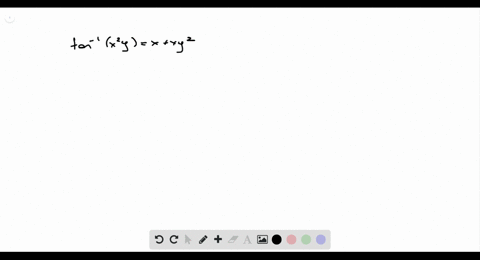
Solved Find Dy Dx By Implicit Differentiation T
If y=(1-x^2/1+x^2) find dy/dx
If y=(1-x^2/1+x^2) find dy/dx-Find dy/dx when x and y are connected by the relation tan1 (x2y2)= a 0 votes 42k views asked in Class XII Maths by nikita74 (1,017 points) Find dy/dx when x and y are connected by the relation tan 1 (x 2 y 2 )= a continuity and differentiabilityCalculus Find dy/dx y^2=1/ (1x^2) y2 = 1 1 − x2 y 2 = 1 1 x 2 Differentiate both sides of the equation d dx (y2) = d dx ( 1 1−x2) d d x ( y 2) = d d x ( 1 1 x 2) Differentiate the left side of the equation Tap for more steps
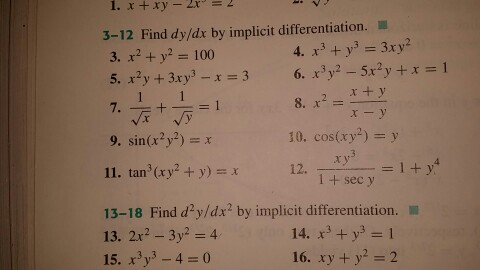



Find Dy Dx By Implicit Differentiation X 2 Y 2 Chegg Com
Solve the linear equation dy/dxy/x=x^2 A xy^2 = x^3 / 4 C B xy = x^4 / 4 C C x^2y = x^4 / 4 C D y = x^3 / 4 CFind dy/dx for x2 y2 = 2xy 2 If 5x2 y4 = 9 then evaluate d^2y/dx^2 when x = 2 and y = 1 Round your answer to two decimal places Use the hyphen symbol, , for negative values 3 find dy/dx if f(x)=(x1)^2x 4 Find the slope of the graph of the Calculus Find dy/dx by implicit differentiation for x^2 2xy y^3 = C MathCompute answers using Wolfram's breakthrough technology & knowledgebase, relied on by millions of students & professionals For math, science, nutrition, history, geography, engineering, mathematics, linguistics, sports, finance, music
Answer to Find dy/dx, given y = (x^2 1)^5 x/(x^2 1)^5 (x^5 x)^19 (x^4 1)^5(x^5 1)^4 By signing up, you'll get thousands of Rules of Derivatives (1) Power rule The power rule of if x(1y)^1/2y(1x)^1/2=0 then prove that dy/dx =1/(1x)^2 Share with your friends Share 0 Dear student, If y=√ (x^21)log (1/x√ (11/x^2), find dy/dx Sarthaks eConnect Largest Online Education Community
if y = log tan (∏/4 x/2) show that dy/dx = sec x donot go shortcut if y = log (x (1 x 2) 1/2) prove that dy/dx = 1/log(x (1 x 2) 1/2) 1/(1 x 2) 1/2;Simple and best practice solution for (2xy)dy(x^2y^21)dx=0 equation Check how easy it is, and learn it for the future Our solution is simple, and easy to understand, so don`t hesitate to use it as a solution of your homework #1/y(dy/dx) = 1/(x 1) 1/(x 2) 1/(2x)# #dy/dx = y(1/(x 1) 1/(x 2) 1/(2x))# #dy/dx = (((x 1)(x 2))/sqrt(x))(1/(x 1) 1/(x 2) 1/(2x))# Hopefully this helps!




Find Dy Dx Y X 2 1 3 2x 1 Sqrt X 3 4x 1




Solve 1 X 2 D 2y Dx 2 X Dy Dx Y X 1 X 2 3 2 Mathematics 2 Question Answer Collection
Multiply both sides of 2 x y (x)^2 ( dy (x))/ ( dx) = 0 by μ (y (x)) 2 x ( ( dy (x))/ ( dx))/y (x)^2 = 0 Let P (x, y) = 2 x and Q (x, y) = 1/y^2 This is an exact equation, because (dP (x, y))/ (dy) = 0 = (dQ (x, y))/ (dx) Define f (x, y) such that (df (x, y))/ (dx) = P (x, y) and (df (x, y))/ (dy) = Q (x, y) Then solve it (1x^2)dy/dx xy = 1/ (1x^2) the ans given is y= x/ (1x^2) C / ( sqrt rt (1x^2) ) , my ans is different , which part is wrong ?Find dy/dx by implicit differentiation x^3 xy^2 y^3 = 1 🎉 Announcing Numerade's $26M Series A, led by IDG Capital!




Find A Derivative With Step By Step Math Problem Solver



Www Tau Ac Il Levant Ode Solution 6 Pdf
Int (x^3)/y dy dx y=x^2 to y=x^(1/2) x=0 to 1 Extended Keyboard;Example 10 For each f(x,y)=0, find dy/dx for each of the following 1 y −6x7=0 Answer dy dx = − f x f y = − (−6) 1 =6 2 3y 12x17=0 Answer dy dx = − f x f y = − (−12) 3 =4 3 x2 6x−13−y =0 Answer dy dx = − f x f y = −(2x6) −1 =2x6 4 f(x,y)=3x2 2xy 4y3 Answer dy dx = − f x f y = − 6x2y 12y2 2x 5 f(xY = log ( (x^21)/x) y = log (x^21) log x Now, you have to recall the derivative formula for logarithmThat is, log y = 1/y * dy dy/dx = 1/ (x^21) *derivative of (x^21) 1/x* derivative of
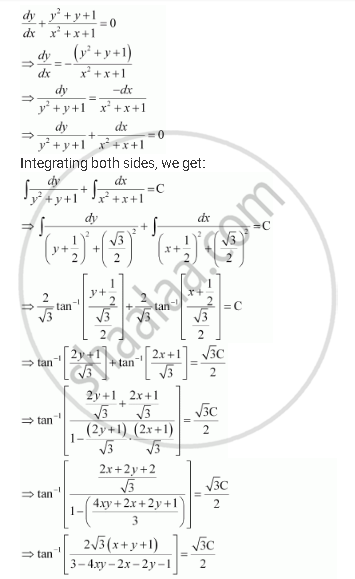



Show That The General Solution Of The Differential Equation Dy Dx Y 2 Y 1 X 2 X 1 0 Is Given By X Y 1 A 1 X Y 2xy Where A Is Parameter Mathematics Shaalaa Com




Find Dy Dx When I Y Sqrt X Ii Y X 5 X 4 7
Read how Numerade will revolutionize STEM LearningBernoulli's equation has form, \frac{dy}{dx}p(x)y=q(x)y^n Now, consider this, \frac{dz}{dx}z^2x=z^2z This easily simplifies to, \frac{dz}{dx}z=(1x^2)z^2 where p(x)=1 Bernoulli's equation has form, d x d y p ( x ) y = q ( x ) y n Now, consider this, d x d z z 2 x = z 2 z This easily simplifies to, d x d z − z = ( 1 − x 2 ) z 2 where p ( x ) = − 1KCET 15 If y= log ( (1x2/1x2)) then (dy/dx) is equal to (A) (4x/1x4) (B) (4x3/1x4) (1/4x4) (D) (4x3/1x4) Check Answer and Solut




If Y Xcot X 2x2 3 X2 X 2 Find Dy Dx Mention Each And Every Step Mathematics Topperlearning Com Palrsebb



Secure Media Collegeboard Org Digitalservices Pdf Ap Ap16 Calculus Ab Q4 Pdf
Question 1) Find Dy/dx Given That Y = (x^2 1) / (x^21) 2) Find Dy/dx Given That Y = (x^2 1) / (x^21) This problem has been solved!In calculus, Leibniz's notation, named in honor of the 17thcentury German philosopher and mathematician Gottfried Wilhelm Leibniz, uses the symbols dx and dy to represent infinitely small (or infinitesimal) increments of x and y, respectively, just as Δx and Δy represent finite increments of x and y, respectively Consider y as a function of a variable x, or y = f(x)In Introduction to Derivatives (please read it first!) we looked at how to do a derivative using differences and limits Here we look at doing the same thing but using the "dy/dx" notation (also called Leibniz's notation) instead of limits We start by calling the function "y" y = f(x) 1 Add Δx When x increases by Δx, then y increases by Δy




If Y X 1 X 1 X 5 Then Dy Dx Youtube



What Is The Differentiation Dy Dx When Y 5x 2 1 X Quora
Click here👆to get an answer to your question ️ If y = sin^1(2x/1 x^2) then find dy/dx 7c Find y given dy/dx Integration Mini Video Lecture This is a common integral calculus question, where we are given an expression for dy/dx and x and yvalues, and we need to find ans expression for yIntegrate both sides with respect to x integral (2 ( dy (x))/ ( dx))/ (y (x)^2 1) dx = integral1/ (x^2 1) dx Evaluate the integrals 2 tan^ (1) (y (x)) = tan^ (1) (x) c_1, where c_1 is an arbitrary constant Solve for y (x) Answer y (x) = tan (1/2 (tan^ (1) (x) c_1)) 376 views · View upvotes
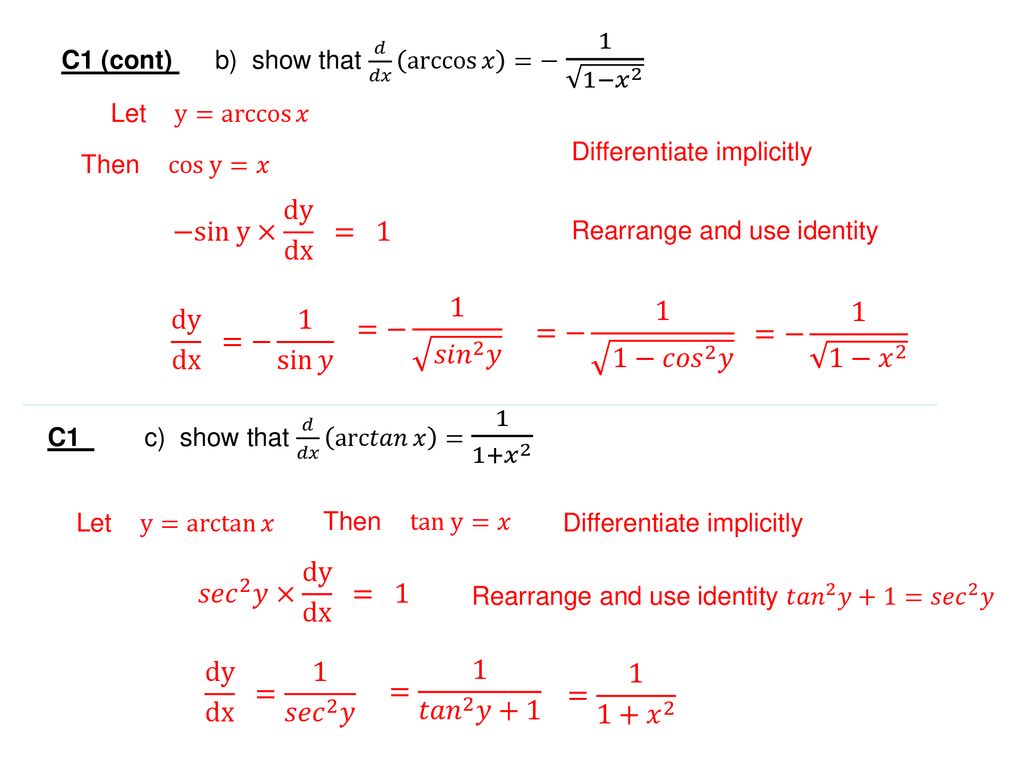



Methods In Calculus Ppt Download




Y Sqrt X 2 1 Log 1 X Sqrt 1 1 X 2 Find Dy Dx Youtube
Sqrt(xy) = 1 x^2 * y, Find dy/dx by implicit differentiation can you please explain how to to find dy/dx for the function x^2 y Y^2 x = 2 asked in CALCULUS by mathgirl Apprentice differentiation;0 votes 1 answer If x = a(cosθ logtanθ/2), y = asinθ , find dy/dx at θ = π/4




Implicit Differentiation




Find Dy Dx For The Following 1i Y Ln Frac X Square Gauthmath
If y = x 2 e mx, where m is a constant, then d 3 y/dx 3 = If y = x n log x x(log x) n , then dy/dx is equal to If y = y (x) is the solution of the differential equation (dy / dx) (tan x) y = sinx, 0 ≤ x ≤ π / 3, with y(0) = 0, then y (π / 4) equal toEx 5 3 9 Find Dy Dx In Y Sin 1 2x 1 2x2 Chapter 5 For more information and source, see on this link https//wwwteachoocom/3640/699/Ex539FinddydxinFind the general solution of the differential equation $\frac{dy}{dx}=x^2yx^2y1$ Stack Exchange Network Stack Exchange network consists of 177 Q&A communities including Stack Overflow , the largest, most trusted online community for developers



1




Initial Value Problem Dy Dx Y 1 X 3 With Y 1 0 Separable Differential Equation Youtube
1 Multiple by xayb so Mdx Ndy = 0 with M = xayb 1 xa 1yb 2, N = xa 1yb xa 2yb 1 xa 3yb 2 We choose a, b to achieve 0 = ∂yM − ∂xN = (b 1)xayb (b 2)xa 1yb 1 − (a 1)xayb − (a 2)xa 1yb 1 − (a 3)xa 2yb 2 = xayb((b − a)(1 xy) − (a 3)(xy)2) a = b = − 3 So 0 = Mdx Ndy = (x −In this differentiation problem, the variable y represents a function in x Hence, it can be differentiated with respect to x and do not think that y is a constant Therefore, the function y can be differentiated by the derivative rule of logarithms 1 y × d y d x = d d xClick here👆to get an answer to your question ️ y x^2 = dy/dx has the solution Join / Login Class 12 Maths Differential Equations Solving Linear Differential Equation y x^2 = dy/dx has the sol y x 2 = d x d y The solution of d x d y 1 x 2 x y



Secure Media Collegeboard Org Digitalservices Pdf Ap Ap16 Calculus Ab Q4 Pdf




Homogeneous Differential Equations
Notice that x 2 c y 2 = 1 c y = y 1 − x 2 So d x d y = c y − x = (y 1 − x 2 ) − x = 1 − x 2 − x y = x 2 − 1 x y How to solve the ordinary differential equation 2xy \frac{dy}{dx} = x^2 y^2Given function y = e2x x2 y = e 2 x x 2 Apply the quotient rule to compute the derivative of the given function dy dx = d dx e2x x2 = (x2)⋅ d dx e2x−e2x ⋅ d dx (x2) (x2)2 = (x22y times dy/dx or 2yy'



Www Ualberta Ca Csproat Homework Math 334 Assignment solutions Assignment 2 solutions Pdf




Find Dy Dx If Y X 1 X 2
y = x3 6x2 11x 6 differentiate each term using the power rule ∙ x d dx (axn) = naxn−1 ⇒ dy dx = 3x2 12x 11 Answer link David C dy dx = 3x2 10x 11Example 1 Find the slope of the tangent line to the graph of the equation xy x = 1 at that point on the graph whose first coordinate is 1 (that is, corresponding to x = 1) Solution We must find dy/dx at x = 1 Assume y is a function of x, y = y (x) The relation now is xy (x) x = 1 Hence,(b) 2 x y dx ( y 2 x 2) dy = 0 Here, M = 2 x y, M y = 2x, N = y 2 x 2, and N x = 2 xNow, ( N x M y) / M = ( 2 x 2 x ) / ( 2 x y) = 2 / yThus, μ = exp ( ∫ 2 dy / y ) = y2 is an integrating factor The transformed equation is ( 2 x / y ) dx ( 1 x 2 y2) dy = 0 Let m = 2 x / y, and n = 1 x 2 y2Then, m y = 2 x y2 = n x, and the new differential equation is exact




If Y X X 1 X 2 Then Dy Dx Is Brainly In



If Y X Sin X Cos X X 2 1 X 2 1 Find Dy Dx Sarthaks Econnect Largest Online Education Community
If y = cos^1((3x 4√(1 x^2))) find dy/dx asked in Continuity and Differentiability by KumkumBharti (539k points) continuity;Calculus Find dy/dx y=1/ (x^2) y = 1 x2 y = 1 x 2 Differentiate both sides of the equation d dx (y) = d dx ( 1 x2) d d x ( y) = d d x ( 1 x 2) The derivative of y y with respect to x x is y' y ′ y' y ′ Differentiate the right side of the equation Tap for more steps Transcript Example 10 Find the general solution of the differential equation 𝑑𝑦/𝑑𝑥=(1 𝑦^2)/(1 𝑥^2 ) 𝑑𝑦/𝑑𝑥=(1 𝑦^2)/(1 𝑥^2 ) 𝑑𝑦/(1 𝑦2)=𝑑𝑥/(1 𝑥^2 ) Integrating both sides ∫1 𝑑𝑦/(1 𝑦^2 ) = ∫1 𝑑𝑦/(1 𝑥^2 ) (∫1 1/(1 𝑥^2 ) dx = tan−1 x c) tan−1 y = tan−1 x c tan−1 y = tan−1 x c is the
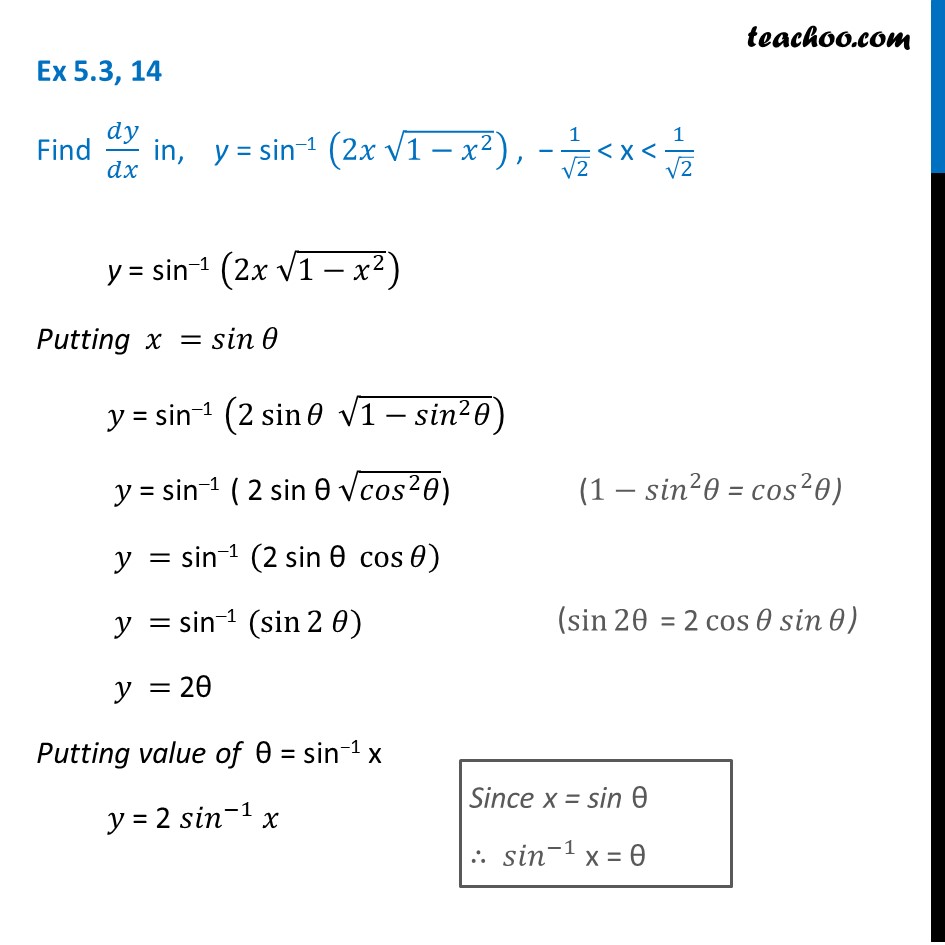



Ex 5 3 14 Find Dy Dx In Y Sin 1 2x Root 1 X2 Cbse
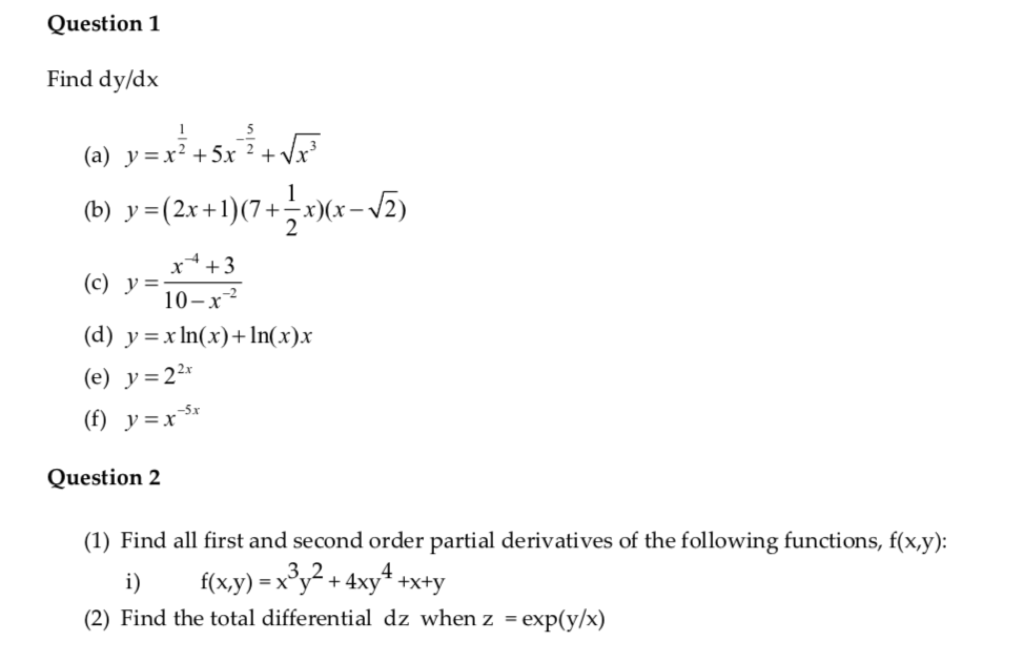



Question 1 Find Dy Dx A Y X 3x Ver B Chegg Com
Solve each of the following initial value problem (dy)/(dx)y cot x=2cos x,y((pi)/(2))=0 Solve for x and y 2^(yx) (x y) = 1 and (x y)^(x y) = 2 Are these Answers Helpful ?(c) Find dy dx given that y = sin − 1 √ x ans dy dx = 1 2 √ x − x 2 (d) Find dy dx given i) y = e sin − 1 (3 x) 1 2 x cos − 1 (4 x) ii) y = 2 x cos − 1 (4 x) iii) y = ln (x 2 2 x) iv) y = sin − 1 (3 x) 2 3 x sin 3 x v) y = cosec − 1 (3 x) vi) y = x 2 cosec − 1 (4Answer to Find dy/dx of y=x^21/x^22x3 Find dy/dx of y=1/5 x^5e^x Ask Expert Tutors You can ask !!




Find A Derivative With Step By Step Math Problem Solver




X 1 Square Root Of X2 2x 5 5 Find Dy Dx For Y T Gauthmath
I found this initial value problem and was supposed to comment on the accuracy of Runge Kutta method Please enlighten me on the analytic solution Find y(2) given the differential equation \\frac{dy}{dx}=y^{2}x^{2} and the initial value y(1)=0 Thank youGet an answer for 'solve first grade ecuation with bernoulli dy/dx = (y^22xy)/x^2 general ecuation and particular when y(1)=1' and find homework help for other Math questions at eNotes Ex 96, 3 For each of the differential equation given in Exercises 1 to 12, find the general solution 𝑑𝑦𝑑𝑥 𝑦𝑥= 𝑥2 𝑑𝑦𝑑𝑥 𝑦𝑥= 𝑥2 Differential equation is of the form 𝑑𝑦𝑑𝑥𝑃𝑦=𝑄 where P = 1𝑥 and Q = x2 Finding integrating factor, IF = e 𝑝 𝑑𝑥 IF = e



If Y F 2x 1 X 2 1 And F X Sinx 2 Can You Find Dy Dx Quora




Find Dy Dx If Y X 2 1 X 2 1 Brainly In
We generally do these by Implicit Derivatives things to remember is Chain Rule , Product Rule and also d/dx of y^2 is ?




X 1 Square Root Of X2 2x 5 5 Find Dy Dx For Y T Gauthmath




What Are The Steps To Solve Dy Dx 4xy X 2 1 1 X 2 1 3 Quora




Find Dy Dx For The Given Function Y X 1 X 2 X Brainly In
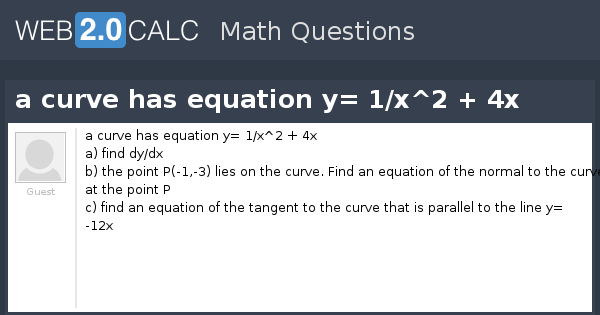



View Question A Curve Has Equation Y 1 X 2 4x
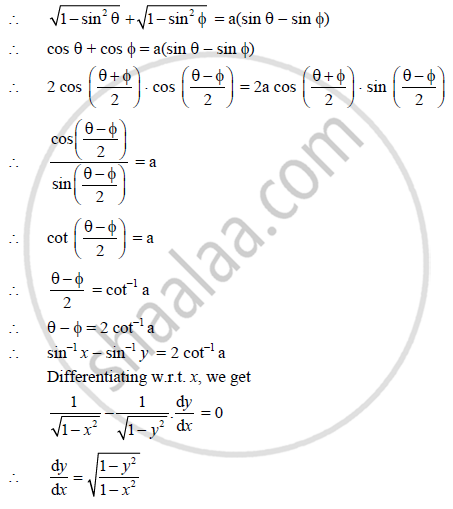



If Sqrt 1 X 2 Sqrt 1 Y 2 A X Y Show That Dy Dx Sqrt 1 Y 2 1 X 2 Mathematics And Statistics Shaalaa Com



Web Northeastern Edu Dummit Teaching Fa19 1341 1341 Midterm 1 Review Problems Pdf
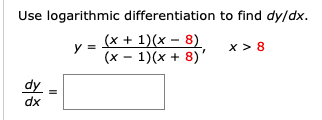



Answered Use Logarithmic Differentiation To Find Bartleby



If Y X Is A Solution Of 2 Sinx 1 Y Dy Dx Cosx And Y 0 1 Then Find The Value Of Y P 2 Studyrankersonline



Http Cda Morris Umn Edu Mcquarrb Teachingarchive M1101 Hw 3 5 Pdf




If Y Cos 1 1 X 1 X Then Find Dy Dx Youtube
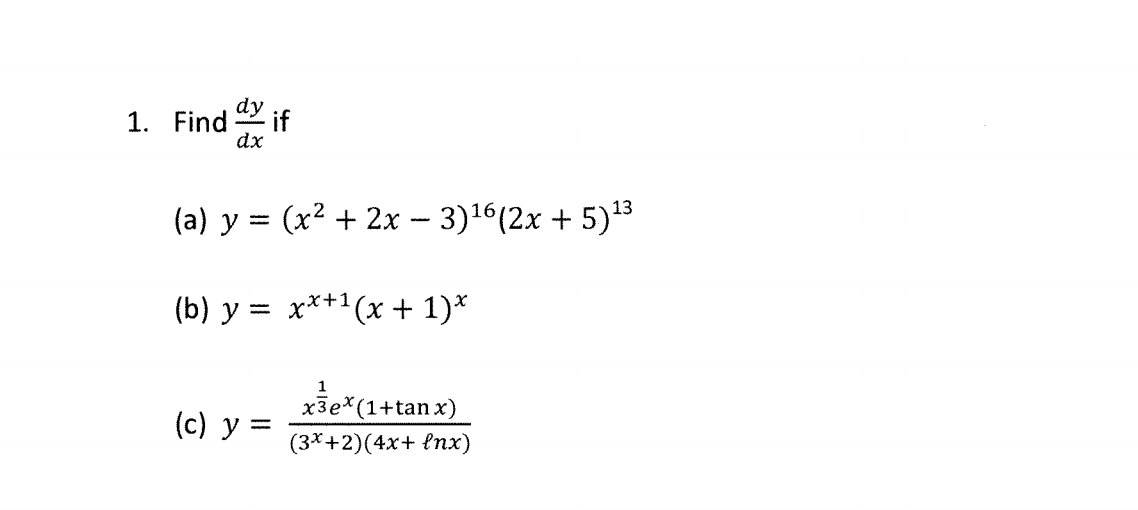



Find Dy Dx If Y X 2 2x 3 16 2x 5 13 Y Chegg Com



1




11 Derivative Find Dy By Dx Of Y Sin 1 1 X2 Upon 1 X2 Youtube



3 8 Implicit Differentiation Calculus Volume 1



What Is The Derivative Of X Xy Y 1 Quora




If Y 1 A 2 X 2 Find Dy Dx Brainly In




Find Dy Dx By Implicit Differentiation X 2 Y 2 Chegg Com




Assignment 1 If Y Xsinx Find Dx Dy 2 If Y Chegg Com




Solve X X 1 Dy Dx X 2 Y X3 2x 1 Maths Application Of Derivatives Meritnation Com
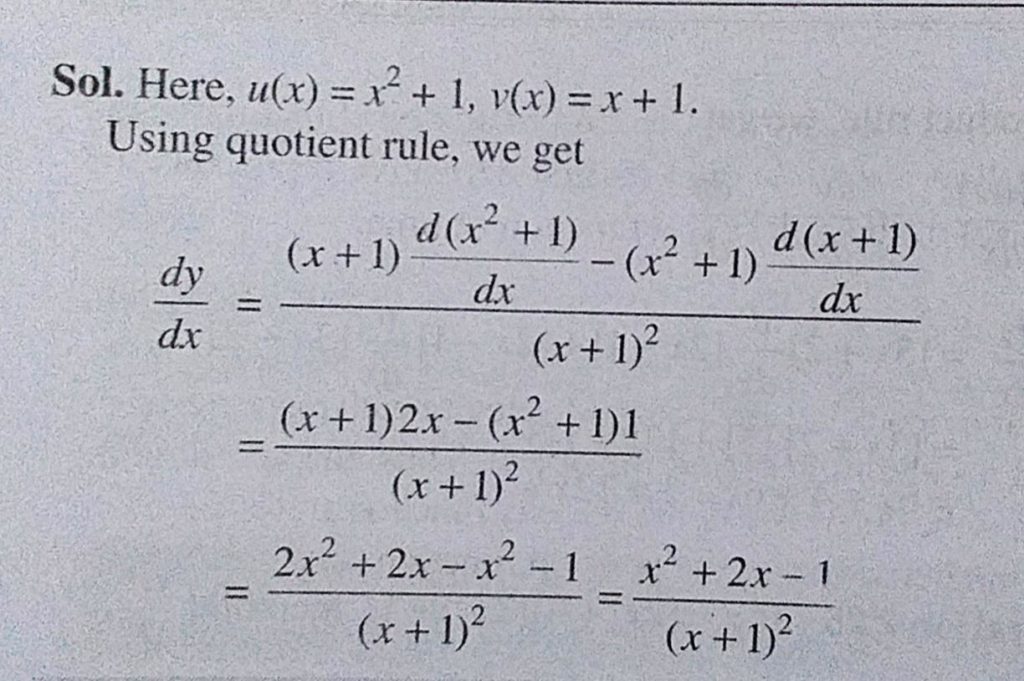



If Y X 2 1 X 1 Then Find Dy Dx Sahay Lms




Solve 1 X 2 D 2y Dx 2 X Dy Dx Y X 1 X 2 3 2 Mathematics 2 Question Answer Collection
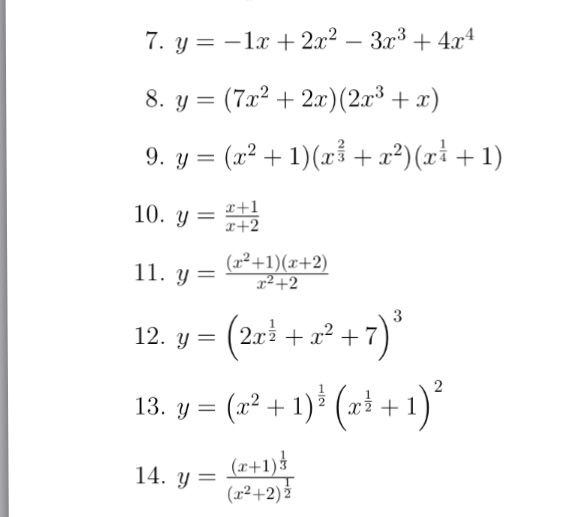



Find Dy Dx Y 1 X 2x 2 3x 3 4x 4 Y 7x 2 Chegg Com



Secure Media Collegeboard Org Digitalservices Pdf Ap Ap16 Calculus Ab Q4 Pdf
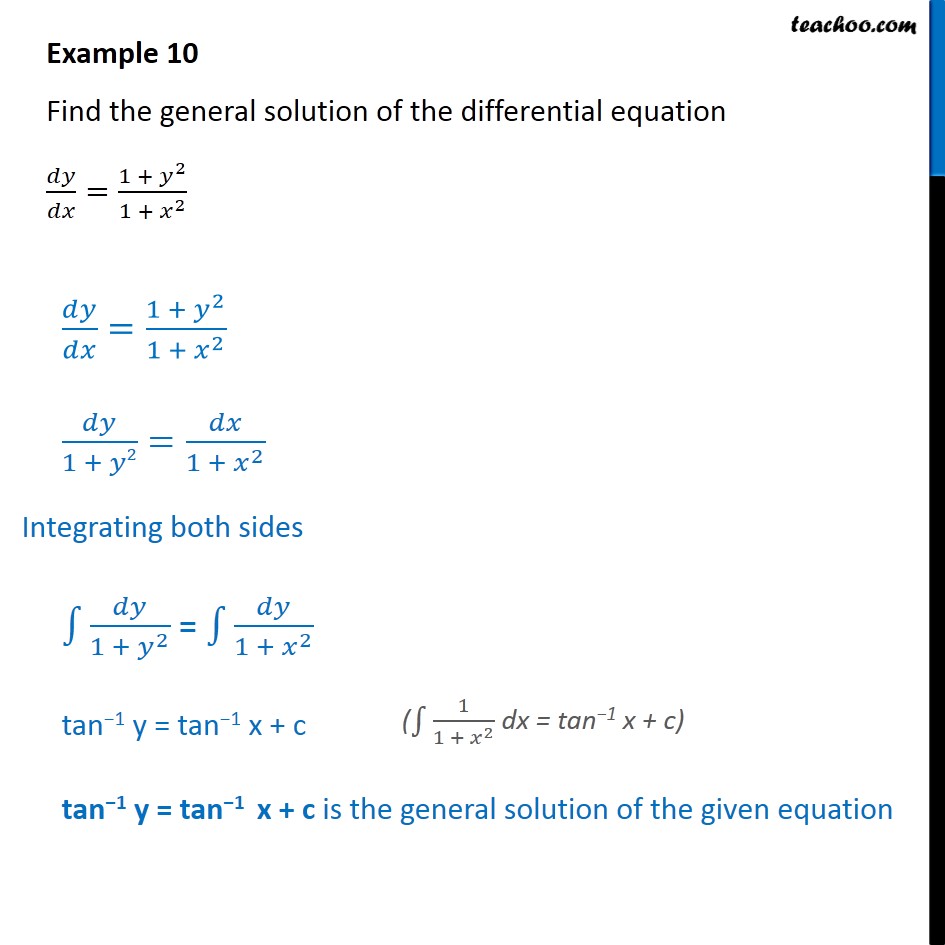



Example 10 Find General Solution Dy Dx 1 Y2 1 X2 Examples




If Y X 1 X 1 Then What Is Dy Dx Equal To




Implicit Differentiation




If Y X 1 Y Prove That X 2 Y 2 3 Dy Dx 1




Find Dy Dx If Y Tan 1 A X 1 Ax Wyzant Ask An Expert



If Y X Sin X Cos X X 2 1 X 2 1 Find Dy Dx Sarthaks Econnect Largest Online Education Community



Q Tbn And9gcq9arl5ab K Kkztqdma6czzlslnfprp6ljv7o6a18 5qqda4yy Usqp Cau
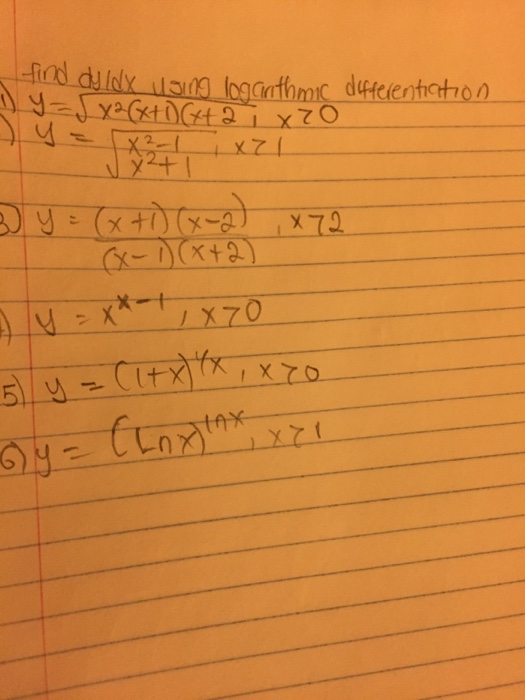



Find Dy Dx Using Loganthmic Differentiation Y Chegg Com
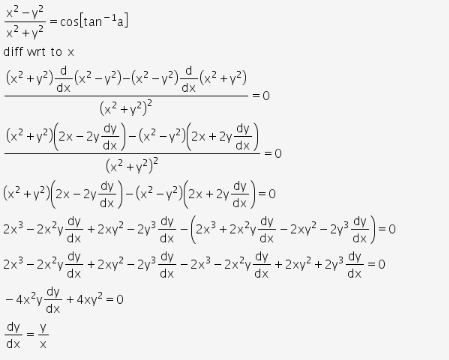



If Cos 1 X2 Y2 X2 Y2 Tan 1 A Prove That Dy Dx Y X Cbse Class 12 Learn Cbse Forum



If Y X 2 1 Log 1 X 1 1 X 2 Find Dy Dx Sarthaks Econnect Largest Online Education Community




Ex 5 3 5 Find Dy Dx In X2 Xy Y2 100 Class 12




Implicit Differentiation
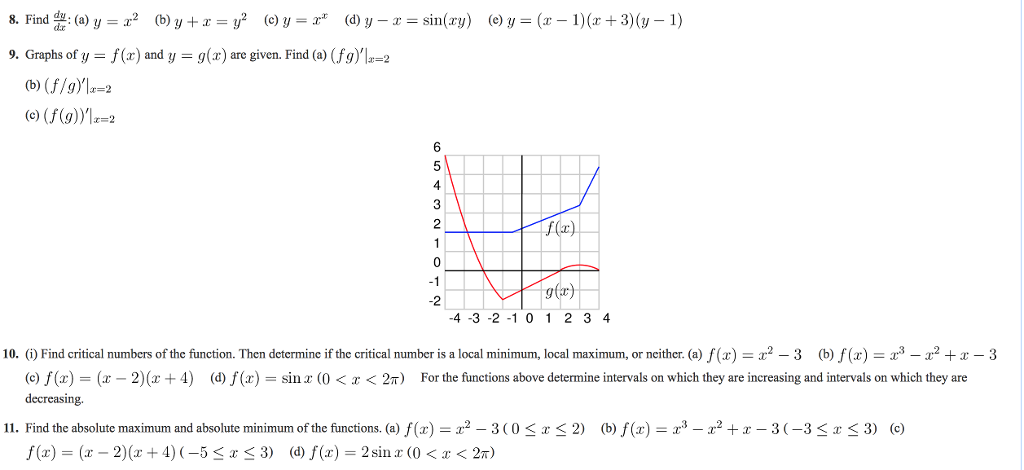



Find Dy Dx A Y X 2 B Y X Y 2 C Y X X Chegg Com




Worked Example Implicit Differentiation Video Khan Academy




Y X 2 Cotx 1 X 2 Find Dy Dx Youtube



How To Find Dy Dx Of The Function Y X 1 X 2 X 1 2 Quora



Find Dy Dx When X And Y Are Connected By The Relation Sin Xy X Y X2 Y Studyrankersonline




X X 1 Dy Dx X 2 Y X 3 2x 1 Novocom Top



3 8 Implicit Differentiation Calculus Volume 1




If Y 1 Sqrt A 2 X 2 Find Dy Dx




If X 1 Y 2 Y 1 X 2 1 Prove That Dydx 1 Y 2 1 X 2




If Y X 1 X Show That 2x Dydx Y 2 X




Solved Find Dy Dx By Implicit Differentiation T
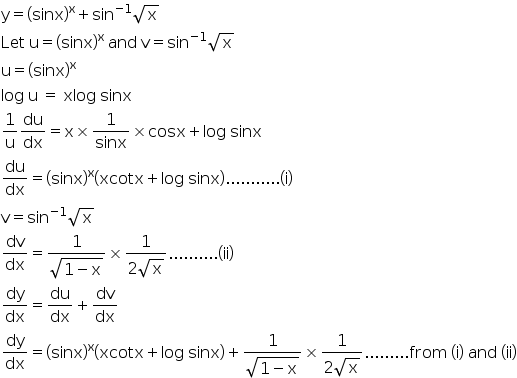



If Y Sinx X Sin 1 X 1 2 Find Dy Dx Explain In Great Detail Do Not Go Shortcut Mathematics Topperlearning Com W0t3auii



How To Get The Special Solution Of This Differential Equation Y Xdy Dx 2 1 X 2 Dy Dx Where X 1 Y 1 Quora



Solved Find Dy Dx If Y 5x Cosx X 2 A 5 2 Cosx X 2 1 X X 2 Cotx Ln Cosx 2 B 5x Cosx X 2 1 X X 2 Tanx Ln Cosx 2 C 5x 2sinx 2 Co Course Hero
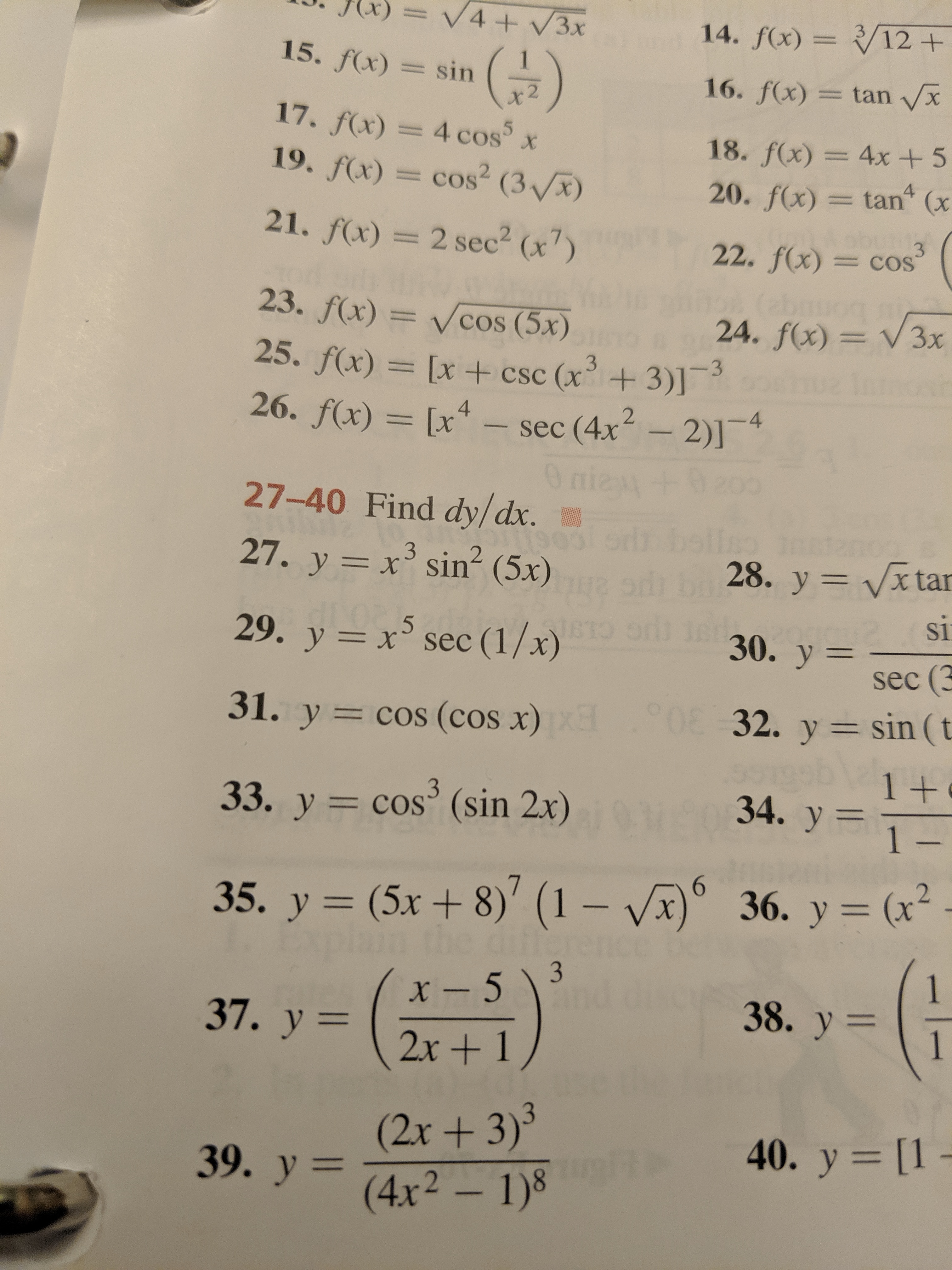



Answered V4 3x 14 F X 12 15 F X Sin 16 Bartleby
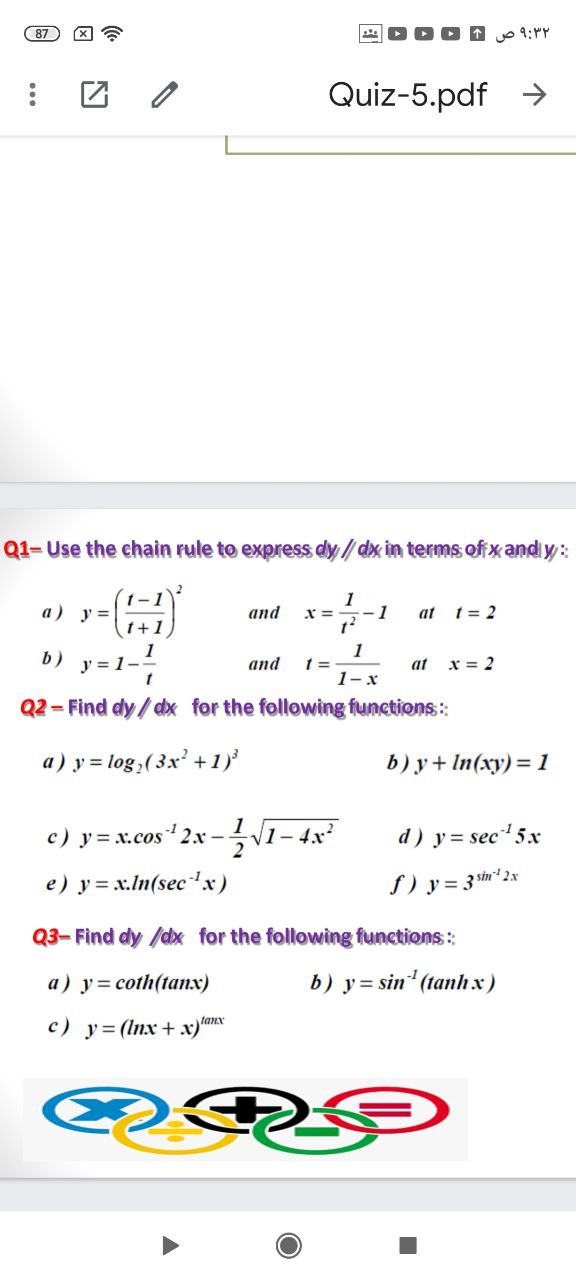



Answered Q1 Use The Chain Rule To Express Dy Bartleby
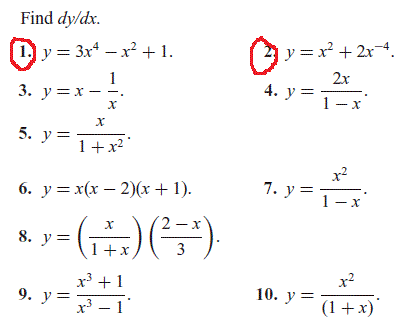



Find Dy Dx Y 3x4 X2 1 Y X2 2x 4 Y X Chegg Com
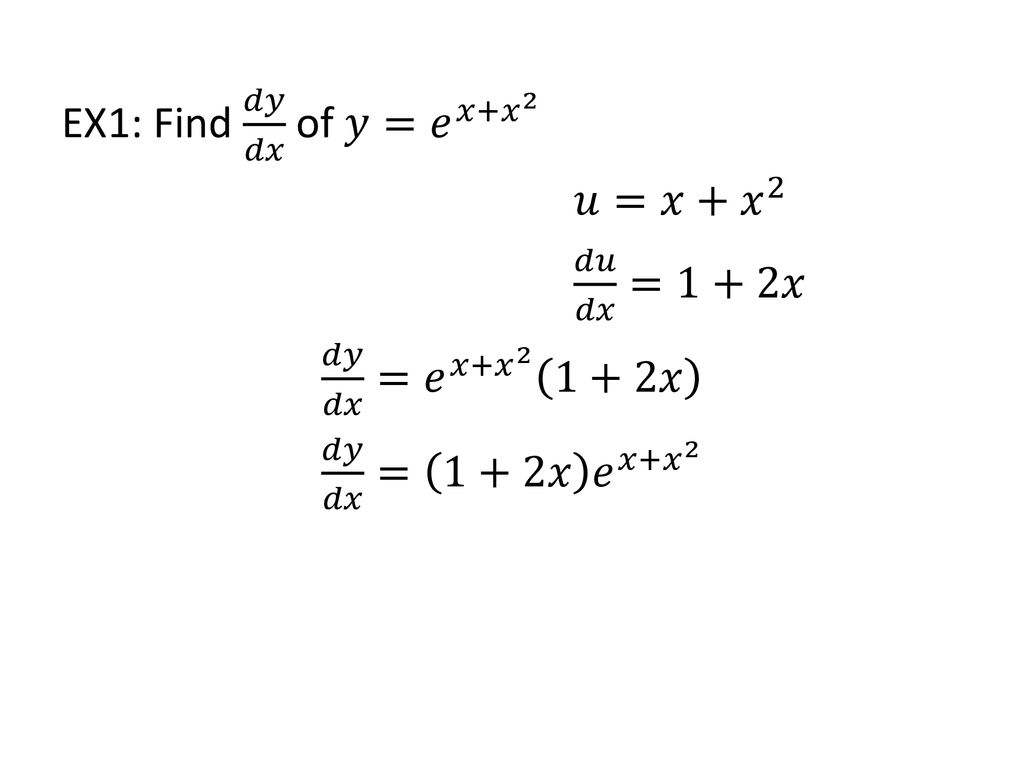



Derivatives Of Ppt Download




Ex 5 3 11 Find Dy Dx In Y Cos 1 1 X2 1 X2 Ex 5 3
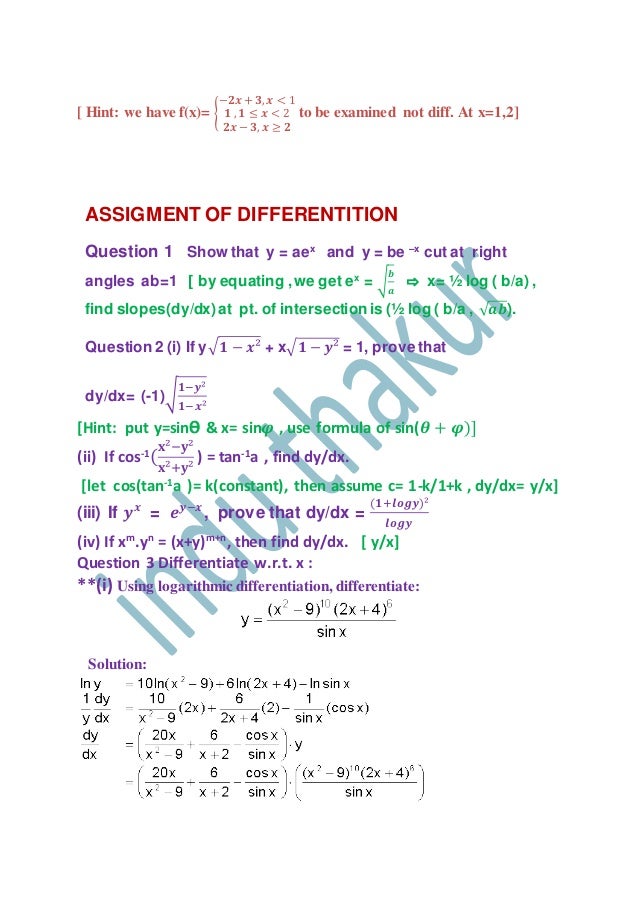



Practice Questions Calculus Xii




Find Dy Dx When Y X2 1 X 1 Maths Application Of Derivatives Meritnation Com




Solve Y 1 Xy Dx X 1 Xy X 2y 2 Dy 0 Mathematics Stack Exchange




Differentiation The Derivative And The Tangent Line Problem Ppt Download



Q Tbn And9gcq69xqaiwgxy95 44f5sqsm2pnlgxvor Roue6xadfczqpkv4qx Usqp Cau




Engineering Mathematics Notes
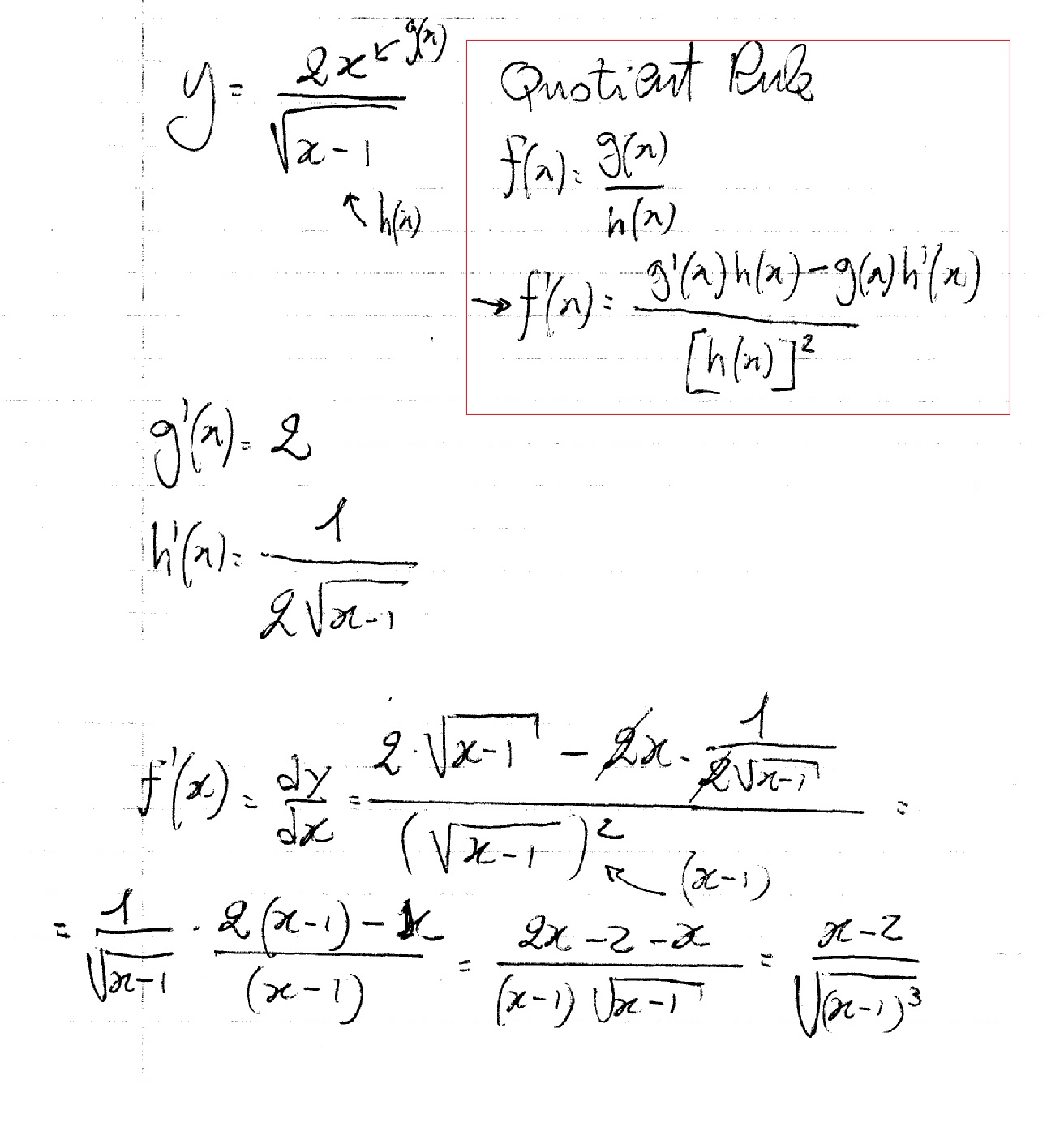



How Do You Find Dy Dx For Y 2x Sqrt X 1 Socratic




If Y Logx Cosx X 2 1 X 2 1 Find Dy Dx Maths Continuity And Differentiability Meritnation Com
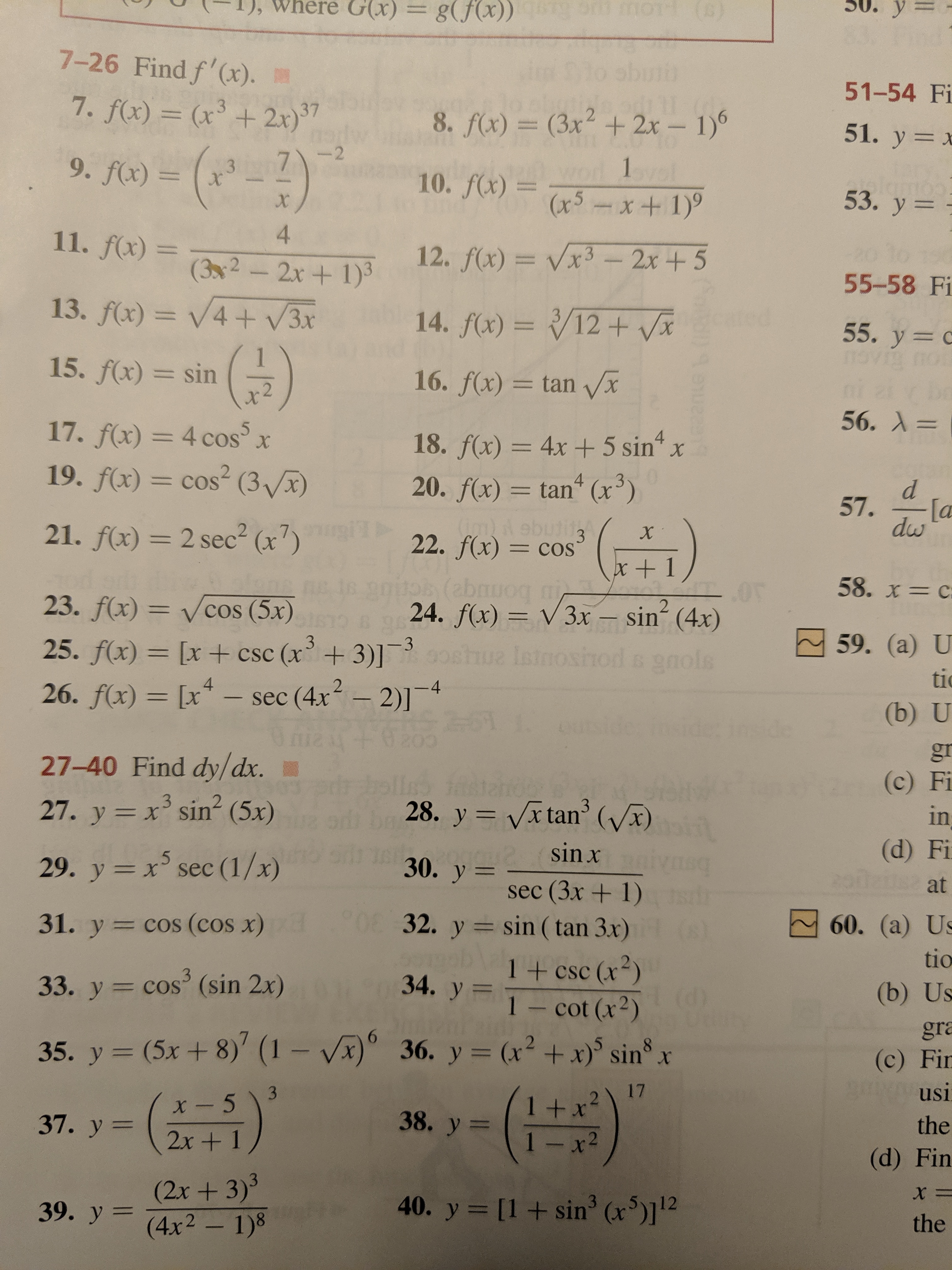



Answered G X U G Fx 00 O 7 26 Find F X Bartleby




Differentiate The Function With Respect To X X Xcosx X 2 1 X 2 1 Mathematics Shaalaa Com




X 2 Y 2 1 Find Dy Dx By Implicit Differentiation Youtube
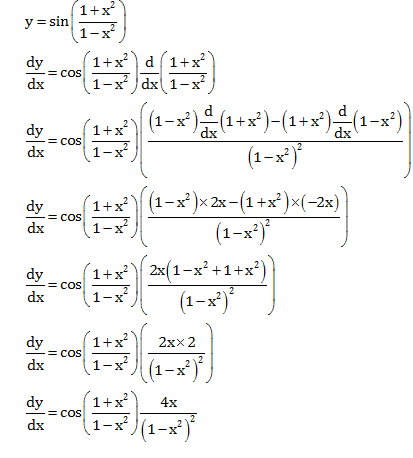



Find Dy Dx Y Sin 1 X2 1 X2 Mathematics Topperlearning Com 8s1l799



Find Dy Dx If Y Xtanx X2 1 2 Studyrankersonline
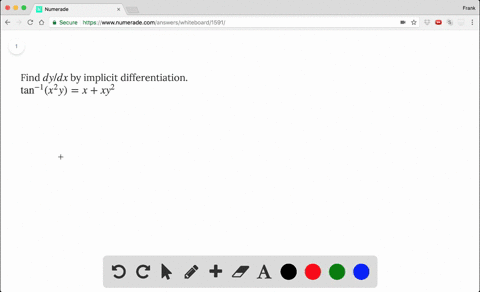



Solved Find Dy Dx By Implicit Differentiation T




If Y X 3x 4 Find Dy Dx At X 5 Quiztablet




What Is The Differentiation Of Y X 7 X 2 X 3 Quora




If Y X Is The Solution Of Dy Dx X 2 1 Y 2 Y 0 2 Then Y 3 Homeworklib




If Y 3 U 2 U And U 4x 1 X 2 Find Dy Dx Brainly In



Solved Find Dy Dx Y 2x 6 Find F X F X X 3 2 4 Find The Derivative D Dx 7 S Q R T X 7 X Find The Derivative Course Hero




Ex 9 4 6 Find General Solution Dy Dx 1 X2 1 Y2




Find Dydx Where X 2 Y 2 3xy 1
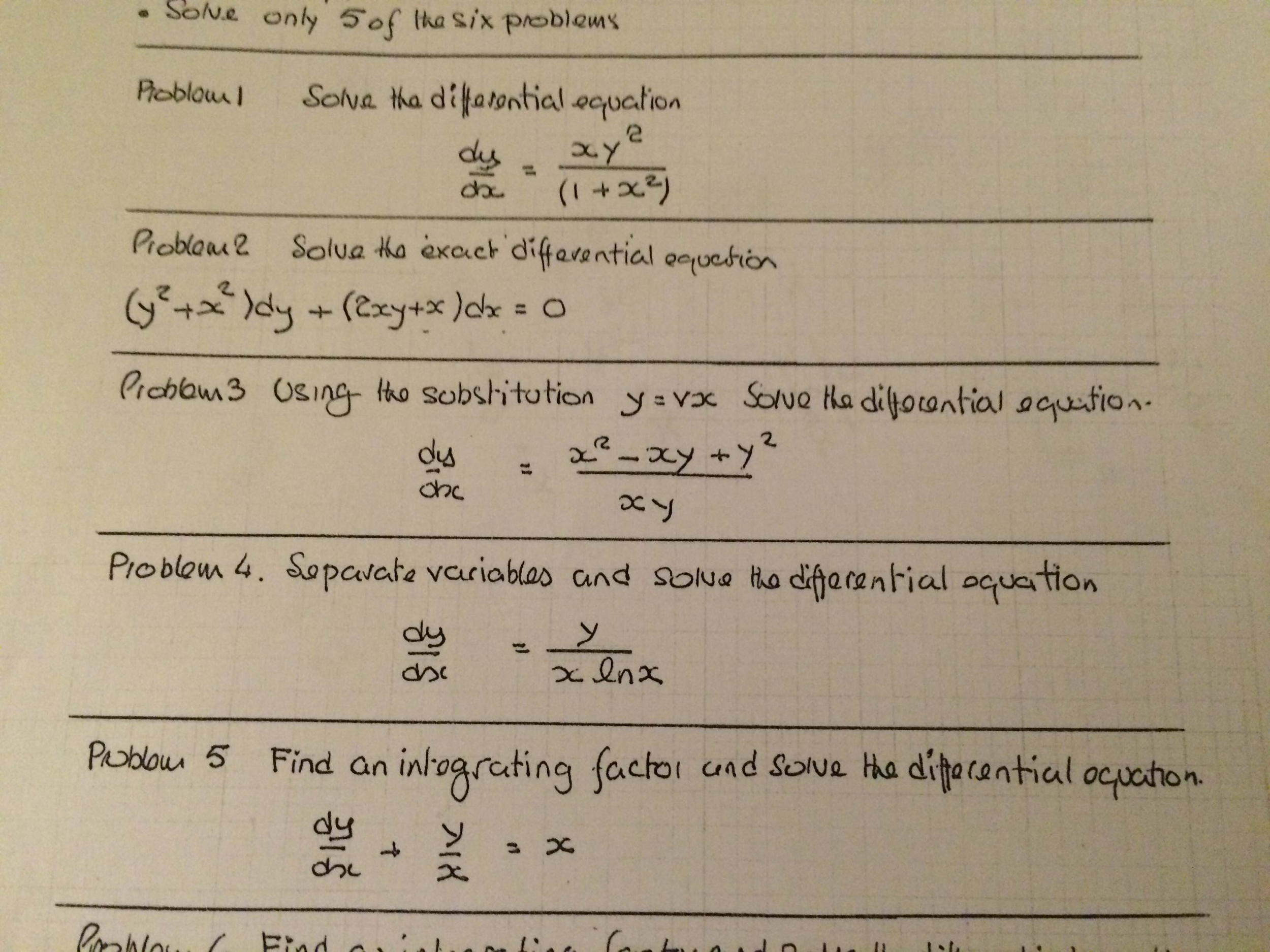



Solve The Differential Equation Dy Dx Xy 2 1 Chegg Com


